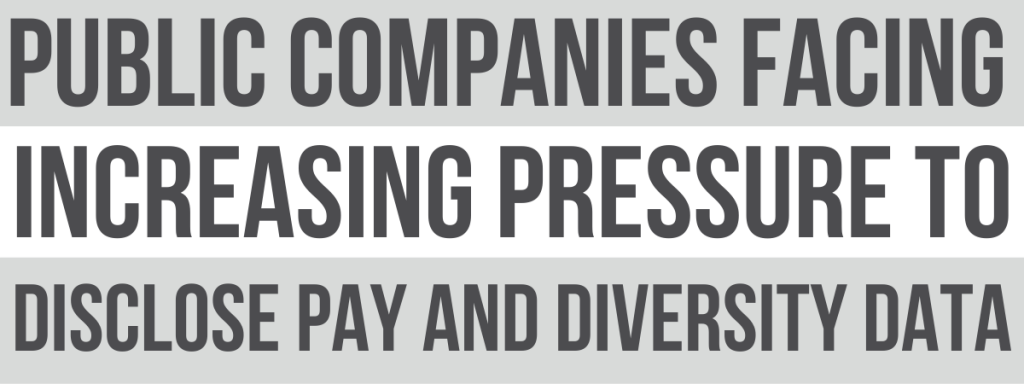
Posted September 9th, 2021 in Legal Insights with Tags The Equal Pay Advisor
Public Companies Facing Increasing Pressure to Disclose Pay and Diversity Data
Publicly held corporations are facing increasing pressure from a variety of sources to disclose their diversity and pay equity data. Legislative and regulatory changes, activist shareholder groups, and public campaigns are beginning to have an impact. Although most corporations do not make diversity and pay equity data public, the list of corporations disclosing such data is growing longer.
Public corporations have seen a dramatic increase in pressure to disclose diversity and pay equity data over the last decade. Socially conscious investment entities such as Arjuna Capital and the New York City Pension Funds began the effort to push corporations to disclose their pay equity and diversity data. Still, they were initially outliers in that regard.
Over the last two years, corporations have seen a major shift in the intensity of those efforts. Legislative and regulatory entities are now pushing corporations to disclose diversity and pay equity data. For example, corporations with 100 or more employees in the state of Illinois must disclose their diversity data in connection with their corporate filings beginning on January 1, 2023; the State of Illinois will publicly post that data. Similar legislation has been introduced in a variety of other states. In addition, the investor group pressure to disclose diversity and pay equity data has shifted from a few socially conscious investment groups to major institutional investors such as Blackrock. This shift means that most major U.S. corporations have a significant investor that has announced plans to push corporations to disclose diversity and pay equity data.
These changes are beginning to have an impact on the U.S. corporate landscape. In 2015, virtually no U.S. corporations disclosed diversity or pay equity data. It remains true that the majority – 68 percent – of U.S. publicly held corporations do not disclose diversity or pay equity data. However, according to Just Capital, 13 percent of such corporations now disclose non-white versus white diversity data; another 13 percent disclose detailed race and ethnicity diversity data, and 6 percent disclose intersectional data while addressing both gender and race ethnicity. The latter two numbers, in particular, are increasing each year. If those trend lines continue, it will not be long before a majority of U.S. publicly held corporations are disclosing diversity and/or pay equity data.
In light of these facts, it is prudent for publicly held companies to conduct a robust review of their diversity and pay equity data now, so they can address any issues presented by the data. Pay equity and diversity are issues that cannot be solved overnight. The sooner corporations address those issues, the more likely that when data is finally disclosed, that data does not reveal any diversity issues or pay inequities.
